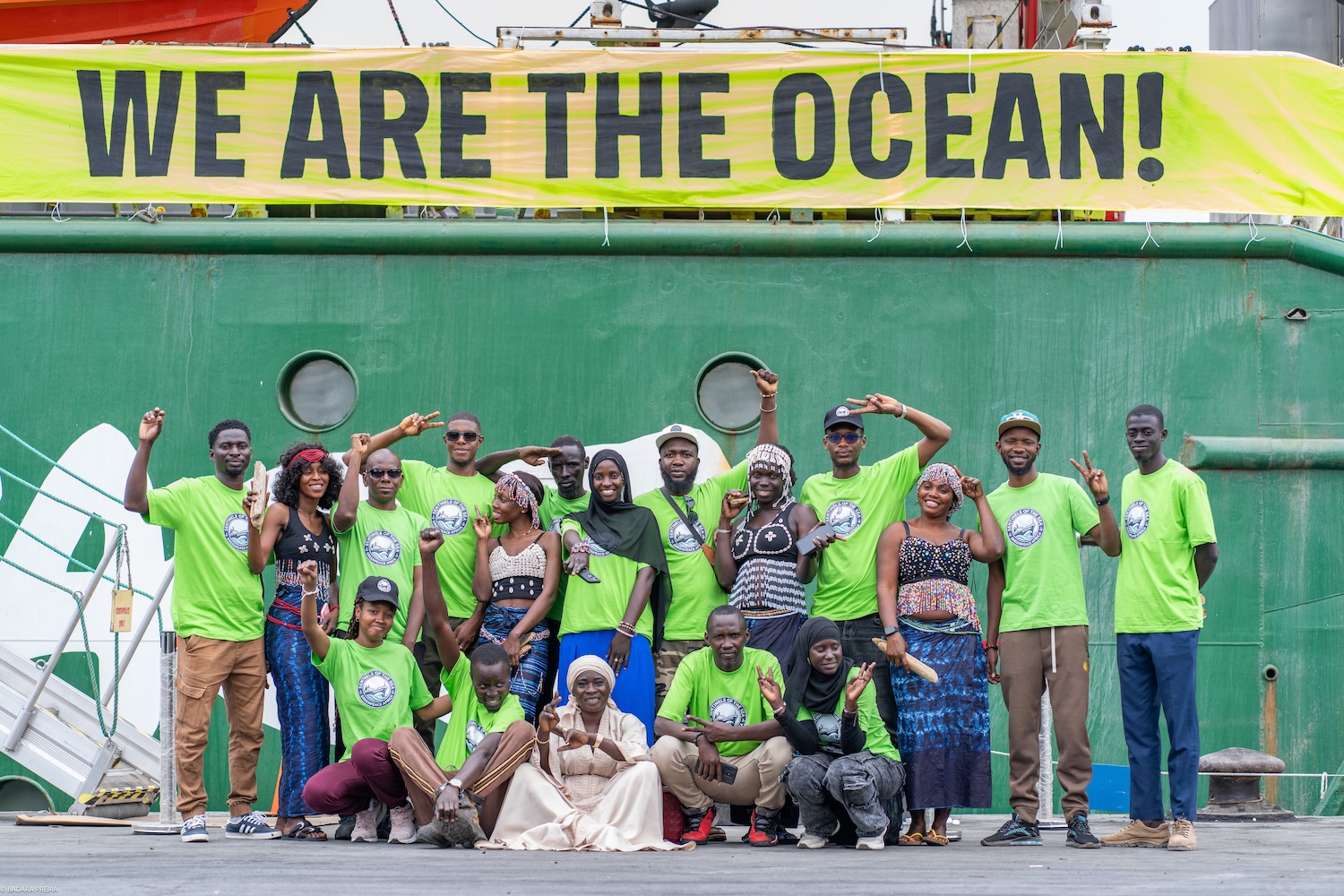Nairobi, Kenya —
In a historic moment ahead of World Environment Day, Greenpeace Africa, civil society groups, interfaith leaders, youth movements, and the Maasai community from Kajiado County have joined forces to urge the government of Kenya to support the Fossil Fuel Non-Proliferation Treaty — a bold, justice-centered global mechanism aimed at phasing out fossil fuels and accelerating a fair, financed transition to renewable energy.
At a press conference held today in Nairobi, stakeholders rallied behind the call for Kenya to join the bloc of 16 nations currently participating in discussions for the Treaty. The event follows the release of a joint press statement which highlights growing multi sectoral support within Kenya for a global commitment to phase out coal, oil and gas.
“Our African nations are bearing the brunt of a climate crisis they didn’t cause,” said Fred Njehu, Pan African Political Strategist at Greenpeace Africa. “Kenya has already shown climate leadership through its renewable energy goals — now is the time to go further. We need global mechanisms like the Fossil Fuel Treaty that support African nations with the finance, technology, and justice they deserve.”
In a landmark move, the Maasai community of Kajiado became the first Indigenous Peoples outside of Latin America to publicly back the Fossil Fuel Treaty, joining 11 Amazonian Indigenous nations. Their support underscores the growing momentum for a legally binding mechanism to end fossil fuel expansion and deliver a just energy transition.
“As the Maasai community, we have lived in harmony with nature for generations,” said Moses Ole Kipaliash, Maasai community leader and environmentalist. “But now, the rains are unpredictable, the land is drying up, and our livestock are perishing. We support the call for a Fossil Fuel Treaty because we want to protect our land and our future from further damage.”
The proposal for a Fossil Fuel Non-Proliferation Treaty is built on three pillars:
- End new fossil fuel expansion everywhere,
- Phase out existing fossil fuel production in a fair and equitable manner,
- Enable a just transition that is financed and prioritizes vulnerable communities.
Support for the Treaty is growing globally, with 16 nation states, over 130 cities and local governments, including Lilongwe, Freetown, Dar es Salaam, and Lusaka, backing the initiative. It is also endorsed by over 600 parliamentarians, 4,000 organizations, including the World Health Organization, the European Parliament, and trade unions representing over 30 million workers.
“With its track record of climate leadership and a bold target of 100% renewable energy, Kenya is uniquely positioned to lead the continent,” said Prince Papa, Africa Campaigner for the Fossil Fuel Non-Proliferation Treaty Initiative. “Backing the Treaty would align with Kenya’s national ambitions, help unlock international finance and technology, and ensure Africa’s needs are prioritized in shaping this global solution.”
As the global movement builds momentum, Greenpeace Africa and its partners call on the Kenyan government to:
- Publicly support and engage in Fossil Fuel Treaty discussions;
- Halt new fossil fuel licenses and expansion projects;
- Develop a national just transition plan with clear timelines, community protections, and investment in clean energy.
“This is not just about emissions; it’s about equity,” concluded Njehu. “We have a responsibility to ensure a liveable future, not just for Kenya, but for the whole world. The Fossil Fuel Treaty offers us a seat at the table to do exactly that.”
For media inquiries, please contact:
Sherie Gakii, Communications and Storytelling Manager, Greenpeace Africa, [email protected], +254702776749
Greenpeace Africa Press Desk, [email protected]



